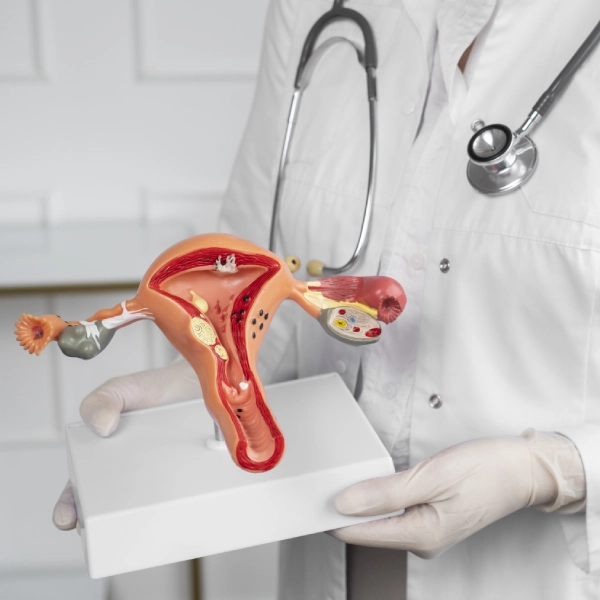IUD Devices
Types of IUD Devices:
Copper IUD (Non-Hormonal): This type of IUD is made of copper and does not contain hormones. It works by releasing copper ions, which create a hostile environment for sperm, preventing fertilization. Copper IUDs can be effective for up to 10 to 12 years, depending on the specific brand.
Hormonal IUD: Hormonal IUDs release progestin, a synthetic hormone, into the uterus. Progestin thickens cervical mucus, making it difficult for sperm to reach the egg, and also thins the uterine lining, reducing the likelihood of implantation. The hormonal IUD comes in various brands, with effectiveness ranging from 3 to 7 years, depending on the type.
Advantages of IUD Devices:
Highly Effective: IUDs are one of the most reliable methods of birth control, with a failure rate of less than 1%.
Long-Acting: Depending on the type, IUDs can offer protection against pregnancy for several years, eliminating the need for daily or frequent contraceptive use.
Reversible: IUDs can be removed at any time by a healthcare professional, and fertility typically returns quickly after removal.
Considerations and Consultation:
While IUDs are a safe and effective option for most individuals, it’s essential to consider individual health factors and preferences before choosing this method. Some things to discuss with a healthcare provider include:
Medical History
Family Planning Goals
Potential Side Effects
Insertion Procedure
Intrauterine devices (IUDs) are available in two main types: hormonal IUDs and non-hormonal IUDs. Both types are highly effective and offer long-term contraception. However, they work in different ways and may suit different individuals based on their preferences and medical needs. Let’s explore the characteristics and differences between hormonal and non-hormonal IUDs.
Hormonal IUDs:
Hormonal IUDs contain progestin, a synthetic hormone that is gradually released into the uterus. This hormone thickens the cervical mucus, making it difficult for sperm to reach the egg. It also thins the uterine lining, which reduces the likelihood of implantation.

Advantages of Hormonal IUDs:
Highly Effective: Hormonal IUDs are more than 99% effective at preventing pregnancy.
Long-Lasting: Depending on the brand, hormonal IUDs can provide protection for 3 to 7 years.
Lighter Periods: Many users experience lighter and less painful periods while using hormonal IUDs.
Reduced Cramping: Hormonal IUDs may help reduce menstrual cramps.
Improvement in Menstrual Symptoms: Some individuals experience a decrease in symptoms related to conditions like endometriosis or heavy menstrual bleeding.
Non-Hormonal IUDs:
Non-hormonal IUDs are made of copper, which creates a spermicidal effect that is toxic to sperm. This creates a hostile environment for sperm, preventing fertilization. Additionally, the copper IUD does not alter hormone levels in the body.
